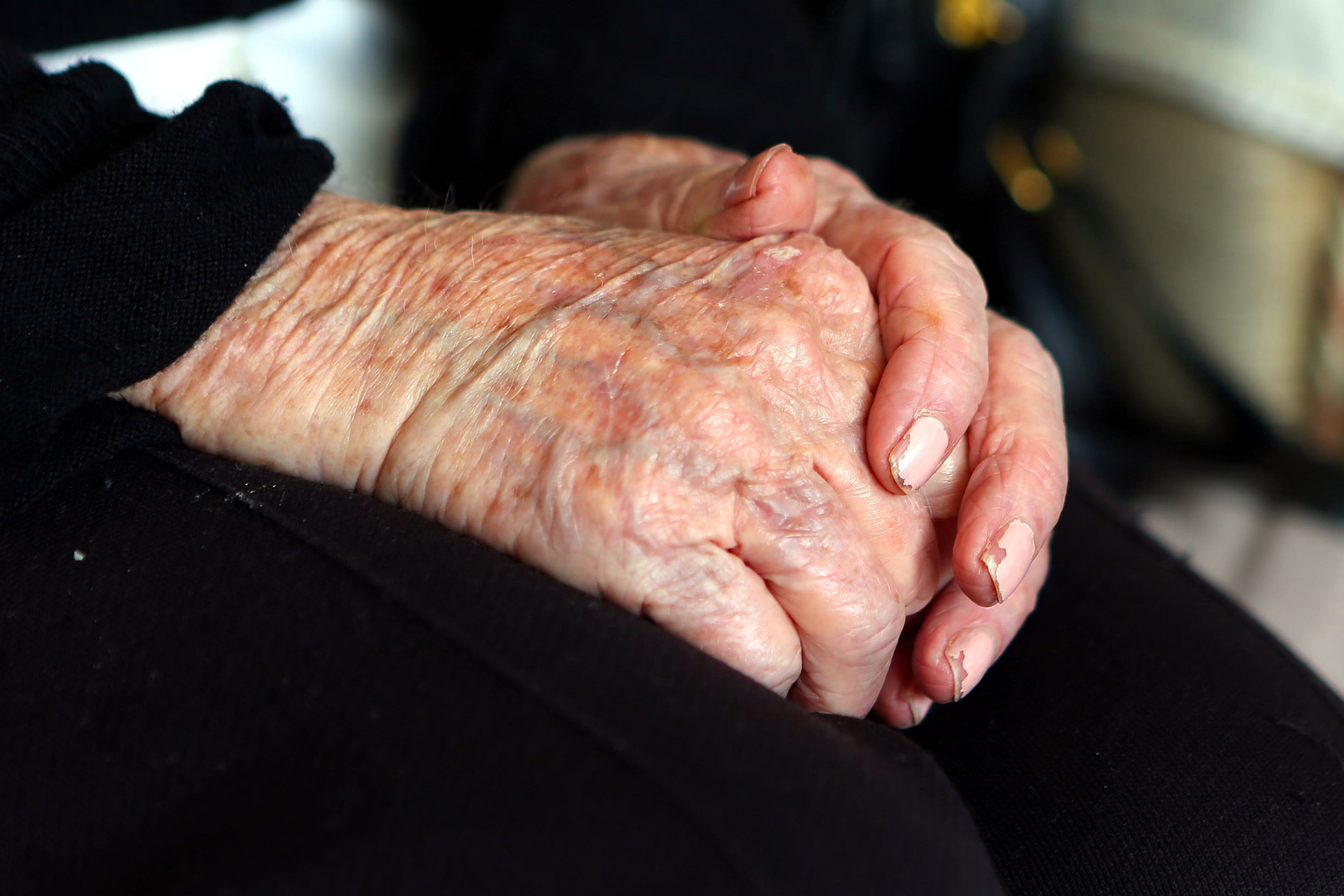Family’s relationship with mother crumbled due to care home rules, inquiry told
Kirstin Duncan blamed inconsistent Covid restrictions during the pandemic.

Your support helps us to tell the story
From reproductive rights to climate change to Big Tech, The Independent is on the ground when the story is developing. Whether it's investigating the financials of Elon Musk's pro-Trump PAC or producing our latest documentary, 'The A Word', which shines a light on the American women fighting for reproductive rights, we know how important it is to parse out the facts from the messaging.
At such a critical moment in US history, we need reporters on the ground. Your donation allows us to keep sending journalists to speak to both sides of the story.
The Independent is trusted by Americans across the entire political spectrum. And unlike many other quality news outlets, we choose not to lock Americans out of our reporting and analysis with paywalls. We believe quality journalism should be available to everyone, paid for by those who can afford it.
Your support makes all the difference.A woman has told an inquiry how she and her family felt they were “losing” their relationship with their late mother as a result of “inconsistent” restrictions in place for visiting care homes during the Covid-19 pandemic.
Kirstin Duncan, a member of Care Home Relatives Scotland, told the Scottish Covid-19 Inquiry the relationship she and her siblings had with their mother, June Scott, was “crumbling” as a result of restrictions on care home visitors in late 2020.
She also told the inquiry how she had to plead with care home staff to visit her mother when she was in end-of-life care in early 2021.
Mrs Scott had multiple health problems including vascular dementia, which meant the family had “no choice” but to place her in a care home in 2019, the inquiry heard.
Before the pandemic in March 2020, her family were able to visit the care home whenever they liked and were “welcomed with open arms” by staff.
But things changed on March 13, 2020 when Mrs Duncan’s sister phoned the care home to arrange a visit but was told by staff not to come.
All that was doing was disrupting an already crumbling relationship. We were actually losing the relationship with her
Over the next nine months, Mrs Duncan said she and her relatives had “no meaningful contact” with their mother throughout the remainder of her life in the care home. She died in March 2021.
She said: “The whole of her was dependent on a reason to live.
“When we were allowed in and then that would be consistently taken away from us, all that was doing was disrupting an already crumbling relationship.
“We were actually losing the relationship with her.
“But despite all that, she would still recognise us when we did manage to get close enough.”
She told the inquiry in a written statement that her family felt this had an impact on her mental and physical health.
There were cycles of “long gaps” between times where it was or was not possible to see her, Mrs Duncan told the inquiry, and there were long delays with guidance for visits being issued to care homes and them being implemented.
The family took exception with a welfare report written by the care home saying Mrs Scott “enjoyed garden visits” in October 2020, with Mrs Duncan saying she and her sister had agreed these had been highly stressful for their mother.
Senior counsel to the inquiry Alan Caskie KC asked Mrs Duncan why she disputed the report.
She said: “It started with saying she enjoyed her garden visits.
“My sister’s account, my brother’s account and my own account was that these visits in the garden and the ones in her room in October were so stressful for her and that we were not going to do it any longer, we weren’t going to put her through it.
“So you had this, ‘yes it’s alright’ in the report, and the reality.”
Mr Caskie asked Mrs Duncan if the report was like the former daily newspaper of the Soviet Union, Pravda, saying it “would always put a positive spin on everything”.
He asked: “Is that was this was?”
Agreeing, Mrs Duncan said: “(It was) an unbelievably positive spin.
“We hadn’t been consulted on this.”
Mrs Duncan said the visits to her mother’s care home were “harrowing” for Mrs Scott, especially on Christmas Day 2020 when her children, grandchildren and great-grandchildren visited in the care home garden but were only able to see her through a window on what was to be her last Christmas.
Mrs Duncan said she was given “essential visit” status but she told the inquiry these would take place in an “interview”-style room and not her mother’s own bedroom, which was distressing for Mrs Scott as she would have to be hoisted from somewhere where she was comfortable and placed in a wheelchair and moved to the room.
Mrs Scott did not always recognise family members due to the PPE they were wearing.
At the end of her evidence, Mrs Duncan emphasised that the Scottish Government had to “enshrine” the status of essential caregiver in Scots law and should provide meaningful contact for relatives in care homes.
The inquiry, taking place before Lord Brailsford in Edinburgh, continues.